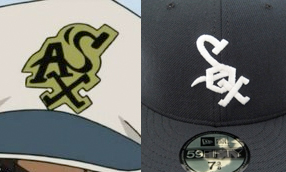Culture
The following page is a look at the culture of the world of Detective Conan as well as Japan.
Contents
Entertainment
Kamen Yaiba
A sentai-type TV show in Japan which is admired by the Detective Boys. Its real-life counterpart are the many henshi heros shows from Japan, but in name it is most likely related to the Kamen Rider series. The prime antagonist of the Kamen Yaiba series is likely Baron Potato. In the Funimation Dub, the character's name is Masked Yaiba which the title parodies Saban's Masked Rider.
The Kamen Rider franchise itself has had screenplays done by Toshiki Inoue. Several Detective Conan actors have appeared on Kamen Rider, including:
Gomera Movies
A collection of movies centered around a giant monster named Gomera. Its real-life counterpart is the Gamera movie franchise. Conan mentions that he watched this series "to death" when he was younger.
Idols
Japanese idols, usually females from their teens to their early twenties, are seen in a wide range of media, from being J-pop singers, actors in dramas, TV personalities, and models for advertisements. An idol's popularity can range anywhere from a few months to several years.[1]
Yoko Okino
Yoko Okino is an idol who sings, dances and acts. Kogoro is a huge fan of Yoko, never missing her television programs or specials; he even has had the opportunity to star in several TV shows and commercials in which Yoko participates (and particularly when she participates). The name "Yoko Okino" is probably a reference to the Japanese-American artist and musician Yōko Ono.
Books
Night Baron Series
A book series written by Yusaku Kudo. In the course of the series, the Night Baron plays several pivotal roles as various individuals and groups (among them the Black Organization) frequently borrow the titular character's name and/or modus operandi for their own twisted purposes.

Detective Samonji
A murder mystery book series originally written by author Nintaro Shinmei, and continued by his daughter Kaori, that has received a television follow-up, with Samonji's role being performed by the actor Osamu Kenzaki. The ID of the murderer changes each time to maintain viewer interest. Both Ran Mouri and Shinichi Kudo enjoy the series. The series would later add three assistants for Samonji, comprising of a bumbling detective, a tomboyish girl and a know-it-all kid with glasses (all patterned after Kogoro Mouri, Ran Mouri and Conan Edogawa, respectively, following their aid to Kaori Shinmei in finding her missing father). [2] Samonji's full name is Samonji Matsuda (松田左文字 Matsuda Samonji).[3] In the Funimation Dub, the character's name is Detective Simon.
Sports
Soccer
Shinichi is very fond of soccer and often fiddles around with a soccer ball when solving cases to help himself think. This trait continues when Shinichi is shrunk and becomes Conan. Shinichi's soccer abilities help Conan out of bad situations and even in capturing criminals, thanks to the Power-Enhancing Kick Shoes. Early on in the series, Conan would kick just about anything around in order to stop criminals in their tracks. Later on Professor Agasa invents the Anywhere Ball Dispensing Belt, providing Conan with an instant missile for his use.
Two major soccer teams found in Detective Conan are the Tokyo Spirits and Big Osaka. There have also been several cases relating to soccer in some way, including but not limited to: Pro Soccer Player Blackmail Case, The Indiscriminate Stadium Threatening Case, and The 3 "K"s of Osaka Case. According to an interview Gosho Aoyama gave in regards to The Eleventh Striker the Tokyo Spirits uniform is inspired by the Juventus F.C. uniform.[4]
Baseball
Baseball is one of the most popular team sport in Japan and is usually taken seriously from high school onwards, particularly the high school Koshien Tournament. Shinichi has not shown much interest in the sport, however as Conan, he often plays baseball with the Detective Boys despite preferring a game of soccer. On the other hand, Heiji Hattori is a big fan of baseball and is often seen wearing a baseball cap, which appears to be a non-trademarked reference to the Chicago White Sox.
Martial Arts
Most of the female protagonists in the series, particularly the ones in their teenage years, are shown to be proficient in the unarmed martial arts. Ran is the captain of the Teitan High School karate team who sometimes uses her karate to defend herself or protect others, though on occasion she also uses it to intimidate Conan, Shinichi, and Kogoro to do exactly what she wants. Kazuha is a high-level practicioner of aikido, Masumi Sera is skilled in jeet kun do, and Eri Kisaki has been taught judo by her enstranged husband Kogoro.
The male main protagonists, on the other hand, usually make use of fighting styles which depend on physical objects as auxiliaries, leaving them in a state of dependency if they have no suitable weapon to aid them. Conan/Shinichi's skill in soccer could be defined as a martial art since he uses it to knock out fugitive or violent antagonists whenever he has something to kick nearby, leaving them stunned with just one hit, and Heiji employs his kendo skills for personal defense whenever he has a sword at hand. Notable exceptions to this norm are Kogoro Mouri, who was a judo champion in his student years, and Makoto Kyogoku, Sonoko's boyfriend, who, like Ran, is a high-level karate champion.
Holidays
Golden Week
Golden Week is a large consecutive holiday in Japan observed on April 29 through May 5th. Several companies shut down for the entirety of Golden Week, giving employees the longest vacation period of the year. Schools also close for Golden Week. Golden Week contains the following holidays:
- April 29 - Shōwa Day: Celebrates the birthday of the late Emperor Hirohito.
- May 3 - Constitution Memorial Day: Celebrates the promulgation of the 1947 Constitution of Japan.
- May 4 - Greenery Day: Celebrates nature.
- May 5 - Children's Day: Celebrates the happiness of children.
Valentine's Day
In Japan, only girls give chocolates on Valentine's Day. This aspect has been explored in Detective Conan in many cases, such as The Valentine Murder Case and The Truth Behind Valentine's. Girls typically will give out different types of chocolate:
- Obligation Chocolate (義理チョコ Giri-CHOKO) - Given in general to others with no feelings attached.
- Favorite Chocolate (本命チョコ Honmei-CHOKO) - Given to the person the girl loves.
- Friend Chocolate (友チョコ Tomo-CHOKO) - Given to friends.
White Day
In Japan White Day is celebrated on March 14th and exists as a "reply day" for the boys to respond to the girls who gave them chocolate on Valentine's Day. Men are expected to respond with gifts at least two or three times more valuable than what they received on Valentine's Day. This aspect was explored in The White Day Murder Case.
Christmas
In Japan, Christmas is mostly celebrated as a lovers' holiday. It is shown often in the show, including even a winter themed opening in season 10 with the song Winter Bells by Mai Kuraki. There have been various Christmas-themed episodes, including the most recent Christmas episode featuring Kaitou Kid, Love on the Ski Slope on Christmas Eve.
New Year's Day
Unlike the Chinese New Year, New Year's Day in Japan has been celebrated on January 1st since 1873. It is typically celebrated with family. Some of the traditions include cooking and eating certain foods, and sending greeting postcards to family and friends. A tradition seen in Detective Conan is the giving of decorated envelopes containing money to children, which occurs in the manga chapter The Fugitive. This chapter has not been animated.
Vehicles
Phones
Food
Trivia
- In Japan, the national police telephone number is 110. The number for medical and fire-related emergencies is 119.
References
- ^ "Japanese idol". Wikipedia. 2010-04-17. http://en.wikipedia.org/wiki/Japanese_idol. Retrieved on 2010-06-28.
- ^ Episode 116-117: The Mystery Writer Disappearance Case & Volume 19: File 2-4.
- ^ Credits listing for The Mystery Writer Disappearance Case
- ^ "Translating Interviews". justwantanaccount. 2012-04-29. http://www.detectiveconanworld.com/forum/topic/1555-translating-interviews/page__view__findpost__p__267880. Retrieved on 2012-04-29.


